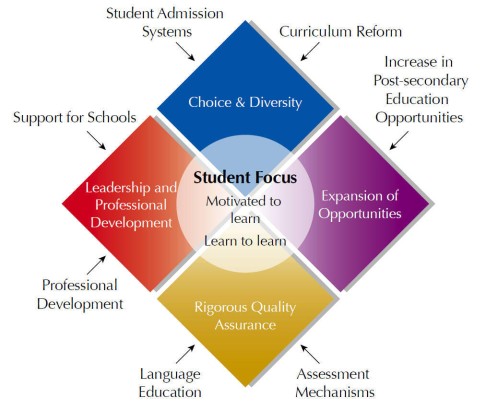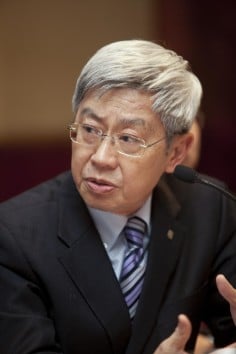Hong Kong universities still fixated on exam grades
A new assessment system aims to make students all-rounders, so why are we still fixated on grades

When Cheng Kai-ming was helping the Education Commission draft reforms to Hong Kong's education system in 2000, he believed changing how public exams were structured would ease the obsession with grades, which was becoming a hurdle to fostering future talent.
Hong Kong students showed "limited ability, despite their high scores", the then-Education Commission chairman Antony Leung Kam-chung noted at the time. The restructuring was intended to give young people the versatility and creativity to succeed in the rapidly changing work environments of the future.
That has yet to be achieved.
"I used to think, wrongly, that if we modified the public exams, it would be a positive force. Now I don't think that will work.
"Exams can be modified so they are not a major obstacle to learning, but they can't be a driving force," says Cheng, a University of Hong Kong education professor.
He doesn't believe the education sector can truly change while exam results remain so prized by universities and employers.
"In Chinese society, study is seen to be above everything," he says.

The Hong Kong Certificate of Education and Hong Kong A-Levels were replaced last year by the Hong Kong Diploma of Secondary Education, as part of a shift to a 3+3+4 academic structure (referring to three years each at junior and senior secondary levels, and four years at university).
This shift introduced school-based assessments for a range of senior secondary subjects, with the grades counting towards students' final diploma results. The idea was to take some of the pressure off annual exams, but teachers and students both found that continuous assessments in class brought incessant stress.
An Education Bureau spokesman says having different modes of assessment improves how students learn, rather than simply focusing on grades.

Still, with the number of first-year government-subsidised university places capped at 15,000 for decades, despite increased numbers of school leavers, the pressure is on to secure a local university place.
In recent years, such tough prospects have prompted a growing number of students to go overseas.
Cheng is incensed that about half of this year's school leavers - more than 13,000 - who met the minimum entry requirement for university, were not given places.
"If the government does not increase the number of university places, the stranglehold will remain."
The existing first-year degree places could easily be doubled to 30,000, he says. "What are we waiting for? Money is not a problem here."
He cites countries such as Taiwan, South Korea and Japan, which are known for their plethora of abundant university places, and major cities, such as Shanghai, Beijing and London, where there are more than 50 tertiary institutions. "How can you be a metropolitan city without very many universities?" he asks.
Retired principal Robin Cheung Man-biu, who served on a government working group studying the transition from senior secondary to higher education, says having more university places could relieve the grade obsession.
He says: "There can't be all-round development if there is no break from the examination-oriented system. The prevailing culture here is one in which students are rewarded and punished according to their exam grades.
"University admissions put little weight on interviews or non-academic achievements."
On achieving the goal of nurturing all-round development, he and Cheng are concerned about the considerable gap in school standards and approaches to learning.
School leadership is among the factors. At Tai Po Old Market Public School (Plover Cove), principal Tsui Chun-cheung and his staff have taken the initiative to develop a diversified curriculum. The school fosters a strong reading culture, emphasises students' personal growth and an understanding of the world around them.
But elsewhere, teachers' heavy workloads and the problem of declining student numbers at schools as the population shrinks means there is little opportunity to implement change, says Cheung, now a professional consultant at the education faculty of Chinese University.
"The form has changed, but the spirit is not there yet. Its vision is not shared by teachers, parents and principals," he says.
"More staff development should be carried out within schools and networks should be set up allowing principals and teachers to share experiences. For any reform to be successful, you need to develop the capacity of school personnel, and nurture new attitudes, knowledge and values within a school community."
There needs to be a cultural shift through all levels of society, educators say.
"We should have a broad view of what achievement or talent is," Cheung says.
"All-round development does not mean a student should excel academically and in other areas. Everyone is different, there should be chance of development and recognition for their individual strengths."